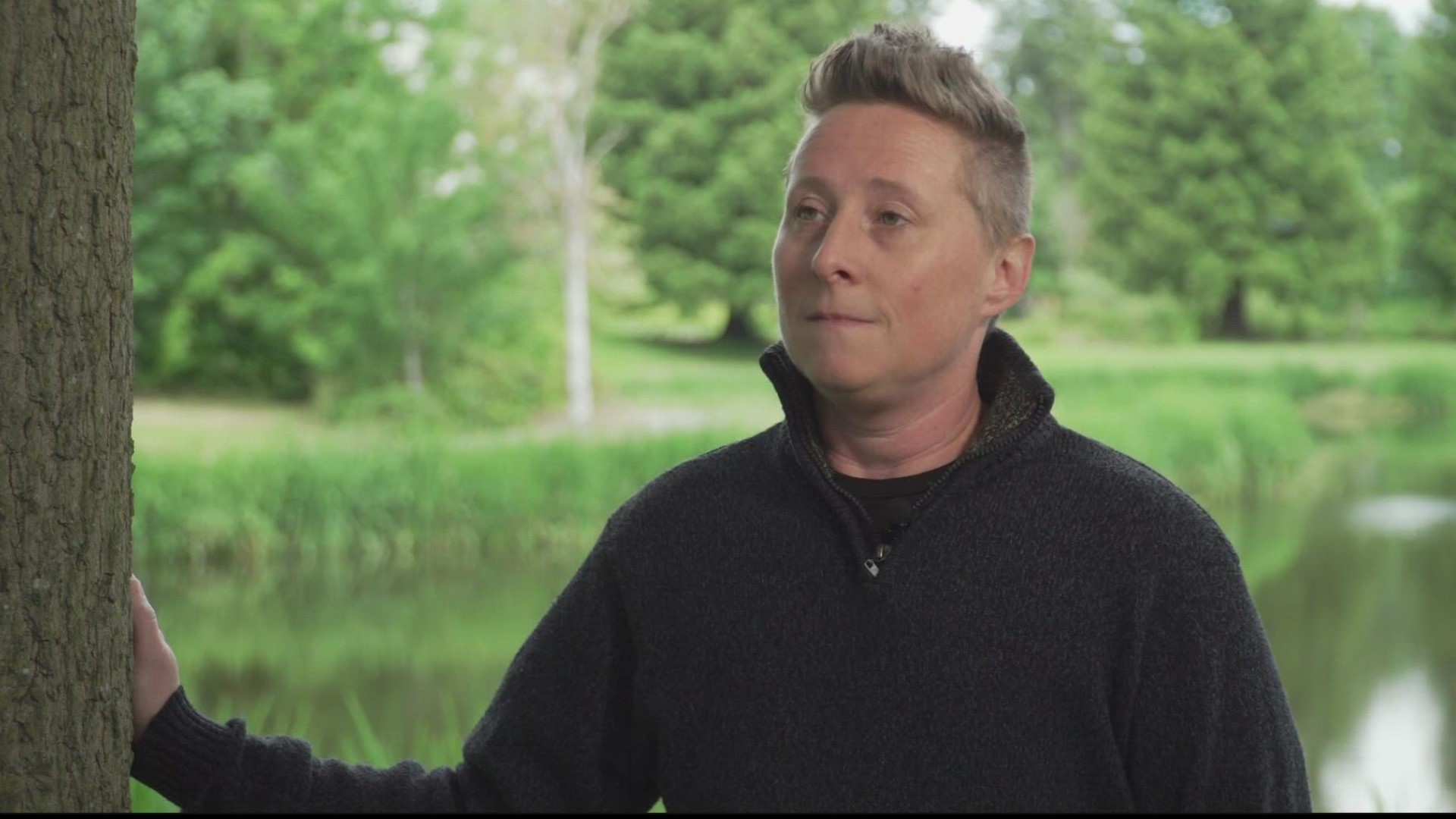PORTLAND, Ore. — There’s been friction within every generation between parents and their kids. But according to student support and wellness counselor Beth Russell, as we strip away the stigma around mental health, it can open up room for better understanding and better health overall.
“I think we’re in this really unusual time. We can all say it’s the pandemic or it’s this or that, but really time is looking forward and we keep looking to our own experiences to frame our kid’s experiences and we can’t do that anymore," Russell said.
When it comes to kids and teens who are part of the LGBTQ+ community, support from family and friends is a crucial part of that mental health.
Forty-five percent of LGBTQ youth seriously considered attempting suicide in the past year, according to the 2022 National Survey on LGBTA Youth Mental Health.
However, the survey also found that LGBTQ youth who felt high social support from their family reported attempting suicide at less than half the rate of those who felt low or moderate social support.
Russell said parents, guardians and loved ones need to find a way to offer that support, even though they may not be able to relate to the unique experiences kids and teens face today.
“I think a lot of our students are super aware of their mental health and their needs and when they try to advocate for themselves, adults say, ‘well, I wasn’t like that when I was young’ or ‘you can’t possibly know how you feel. You couldn’t possibly know your gender identity. You couldn’t know that you have anxiety. You can’t possibly know if you’re depressed.’ And a lot of that is written off,” Russell said.
While that rhetoric is often well-meaning from parents, Russell said it actually ends up being alienating. When that happens, kids will often avoid talking to their parents because they do not feel as though they will be heard, Russell said.
“I think a lot of our kids who are part of the LGBTQ+ population are trying to find themselves in a unique way,” Russell said. “There’s a lot of fear of rejection. Sometimes, it’s unfounded. Sometimes it’s incredibly legitimate They don’t know how their friends are going to react, they don’t know how their parents are going to react.”
Kids and teens are constantly internalizing the world around them. They see how people interact in public, feed off what they hear or see on TV or online and in turn, LGBTQ+ youth are assessing their own safety based on that internalization, Russell said.
“I think our LGBTQ+ youth are really looking at, ‘how do I figure out who I am? Are the people around me safe?’” Russell said. “And then we’re seeing everything happening in the public. We’re seeing laws change, we’re seeing fights, we’re seeing protests, we’re seeing unsafe situations, and every day is an assessment of what is going to be safe for me today. Sometimes it’s emotional safety, sometimes it’s physical safety.”
So what can we do to address those concerns and help kids struggling with mental health?
Russel said the first step to helping your kids is to listen and validate.
“Just trusting kids and saying, ‘okay you feel a lot of anxiety can you tell me more about that? What are some things that you’ve tried that make you feel better? Is there anything I can do to support you in that?’ rather than immediately trying to fix it, let the kids give us the answers,” Russell said. “A lot of times they don’t need us to fix the problem. They need us to hear them and help guide their solution.”
Next, ask your child what they think they should do next?
“Being a parent is hard. Being a guardian, loving other people is hard,” Russell said. “We can’t always protect them, but we can love. We can love each other, we can love our kids, and we can trust our kids. And the more we can be there to support our kids – the more they will be there to talk to us when they are struggling.”

